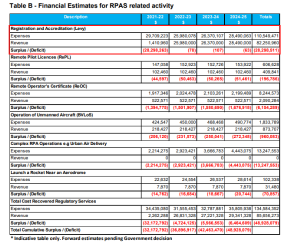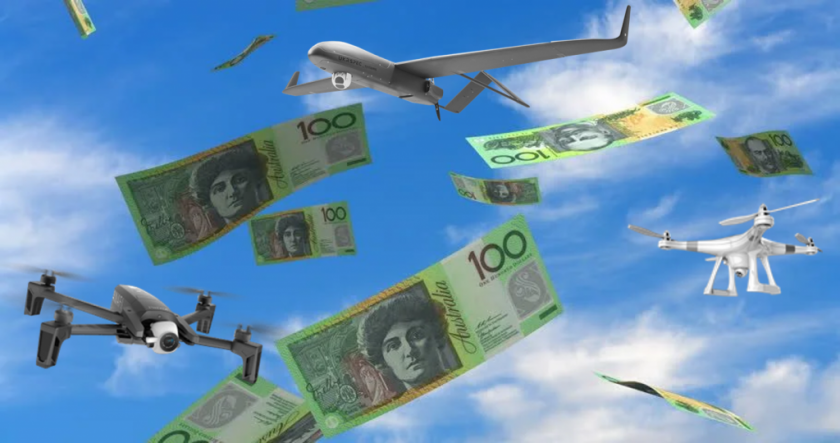The Australian Association for Unmanned Systems (AAUS) is seeking greater transparency on RPAS costs and revenue and has submitted a request under the Freedom of Information Act 1982 for a detailed breakdown of costs and revenue.
According to the association, the Civil Aviation Safety Authority (CASA) recently released its Cost Recovery Implementation Statement (CRIS) dated June 2021 that documents CASA’s cost recovery arrangements for aviation regulatory services and the introduction of Remotely Piloted Aircraft (RPA) levies. It also reports financial and non-financial performance information for those activities and contains financial estimates out to 2024-25.
As part of the 2021-22 budget, the government announced CASA will introduce an annual registration levy for RPA (drones) operated commercially, which has been detailed in this CRIS. This new measure includes charging an annual registration fee of $40 from 1 July 2021 for commercial RPA above 500 grams to partially recover costs. Recreational model aircraft is pending government consideration and there will be further public consultation.
As detailed in the CRIS, CASA forecasts average expenses of approximately $26.5M over the next four financial years under registration and accreditation levy and is projecting full recovery from industry starting from 2022-23. (CASA is only currently recovering $1.4M for 2021-22 from registration fees).
Table B – Financial Estimates for RPAS related activity

As a result of this information, AAUS is seeking greater transparency on CASA RPAS costs and revenue and has recently submitted a request under the Freedom of Information Act 1982 for a detailed breakdown of costs and revenue that are contained with the CRIS.
The CRIS raises a number of concerns for the RPAS Industry relating to the cost of CASA regulatory oversight and also government’s policy settings on cost recovery from industry.
If indeed full cost recovery is being directed by government, it would appear to be inconsistent with the government’s recent National Emerging Aviation Technology (NEAT) policy statement in relation to phased cost recovery in recognition of the nascent sector.
AAUS plans to keep members and the broader Australian industry informed as details are clarified.
For more information visit:




